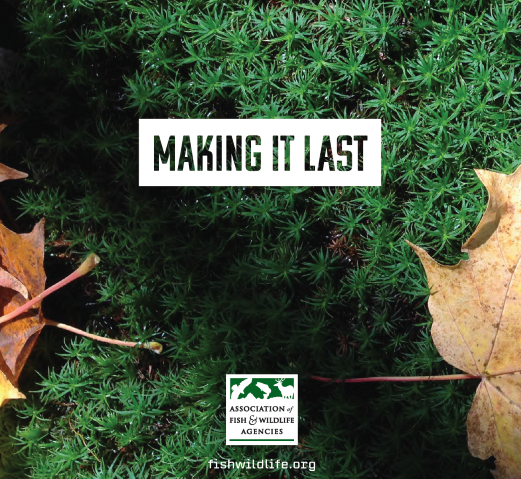In September 2018, the Association of Fish & Wildlife Agencies released a marketing campaign toolkit to address the state wildlife agencies’ greatest challenge:
“…the perception that they are relevant and important only to hunters and anglers.”
As those actively involved in wildlife and/or public land protection already know, the state wildlife agency’s preferential treatment to consumptive users (e.g., those who hunt, trap and fish) is not just a perception, but rather, a reality. Agency actions routinely focus on managing public lands and manipulating wildlife populations for hunter/angler satisfaction with little to no regard given to the larger public or the animals exploited.
This marketing campaign toolkit seems to suggest that the stewards of our natural wild resources are beginning to acknowledge that catering solely to the 4% of the nation’s population who hunt (and 14% who fish) is a bad business model.
However, rather than actually working to adopt an organizational mission and function that truly prioritizes the non-hunting majority’s needs and preferences, the Association of Fish & Wildlife Agencies chooses to coach the state agencies in how to most effectively reach audiences they’ve historically ignored. In other words, the Association would rather hire marketing pros to create the illusion that wildlife agencies serve the broader public, than actually put any effort into examining how they’ve failed non-hunters and their duties as natural resource stewards.
Their toolkit provides state agencies with clever marketing pointers for duping target audiences into believing that they serve the larger public, while, behind the scenes, the agencies are free to continue to route the vast majority of their resources and energy to consumptive uses.
Although the toolkit primarily targets non-hunters and therefore explicitly categorizes hunters and anglers* as a "secondary audience", the smaller print offers clarification:
“Hunters and anglers are likely to be the priority audience for some states…Messages cannot alienate core constituency of hunters and anglers.”
This clever marketing kit, promoting the theme, “Making it Last”, covers every imaginable detail including identification of the wildlife agencies’ target audiences, the preferred demographic for campaign imagery, and the most effective colors and font choices. Prepared branding materials, positioning guidelines, video scripts, and marketing tactics for paid and nonpaid media aid state agencies in targeting each specific category of consumer with their propaganda.
Whether their professional marketing strategy convinces these targeted audiences that state wildlife agencies are relevant for anything other than pandering to the recreational hunters, trappers, and anglers is yet to be seen.
Unlike other social issues that die a natural death following the loss of public support and appeal, recreational killing is artificially supported by the endless supply of money generated via the Wildlife Restoration Act funding scheme. Coincidentally, making “it” last is clearly in the state and federal wildlife agencies’ best interests.
Meanwhile, wildlife and public land protectionists who work tirelessly defending the public good from state wildlife agency’s political maneuvers, often operate on shoe-string budgets. They cannot afford professional marketing services yet do their best to advance the unspoken, shared campaign of “Making it Stop” – “it” being the agency bureaucracy that routinely favors the destruction of public assets for commercial gain.
AFWA’s toolkit provides guidance to state wildlife agencies regarding campaign design, including video scripts. Since Center for Wildlife Ethics has spent years actively challenging wildlife agencies’ mismanagement of natural resources, fixation on killing, and preferential treatment of hunters, trappers and anglers, we couldn’t resist making a short video—albeit on a much smaller budget—modeled after the “Making it Last” campaign:
* (The trapping community has been left out of this discussion altogether)


